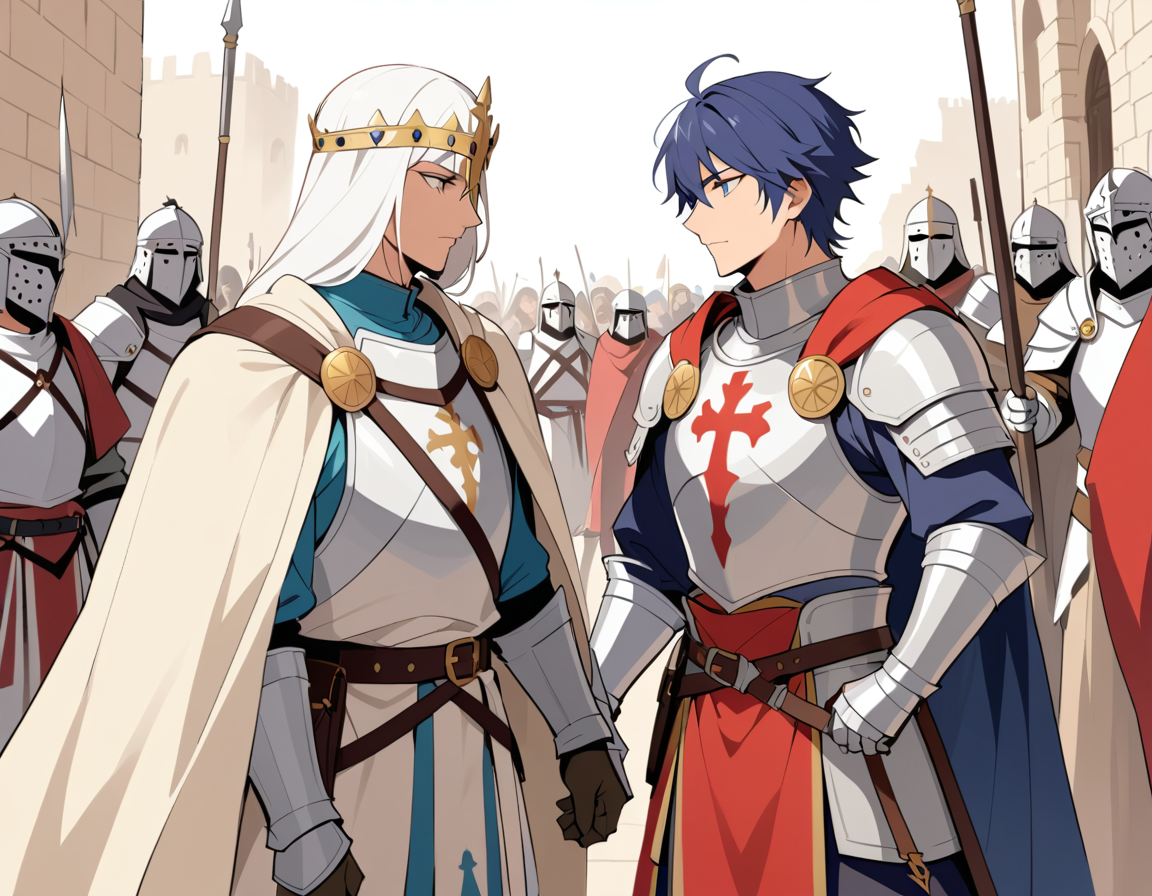Long, long ago, in a land of vast deserts and grand palaces, there was a brave and wise leader named Saladin. He was known worldwide not just for his strength as a warrior, but also for his kindness and sense of justice. His real name was Salah ad-Din, and he lived when knights, kings, and soldiers fought for control of the Holy Land, where many important religious cities stood.
Saladin wasn't born a king, but he became a great leader through his wisdom and his heart. He was born in the year 1137 in a city called Tikrit, near the great rivers of Mesopotamia. As a boy, Saladin learned how to read, how to be fair, and most importantly, how to treat people with respect. He grew up hearing stories of honor and courage, and he wanted to make the world a better place.
When Saladin grew older, he joined the army. He was brave in battle, but what made him special was his compassion. Even when he fought against strong enemies, he always tried to find ways to end the fighting peacefully.
The Battle for Jerusalem
One of the most famous stories about Saladin happened when he became the ruler of Egypt and Syria. At that time, Christian knights from Europe had come to the Holy Land to take control of the city of Jerusalem. The city was sacred to many people: Christians, Muslims, and Jews. For years, the city was the center of fierce battles.
Saladin led his army towards Jerusalem, but unlike many other leaders who wanted to destroy everything in their path, Saladin had a different plan. He wanted to reclaim the city for his people, but he wanted to do it with as little harm as possible.
In 1187, Saladin’s army surrounded Jerusalem. The city’s defenders were scared, for they remembered the harsh battles from years before. But when Saladin’s army entered the city, something unexpected happened.
Saladin showed mercy.
Instead of hurting the people of Jerusalem or destroying the city, Saladin treated everyone with respect. He allowed Christians to leave the city peacefully and even provided safe passage for them to travel. He invited Jewish families, who had been forced out long ago, to return and live there. Saladin’s kindness surprised everyone, even his enemies. He proved that being strong didn’t mean being cruel.
The Crusader King and Saladin’s Honor
Saladin’s most famous opponent was a bold king from England named Richard the Lionheart. The two warriors were very different but shared a mutual respect. They met during the Third Crusade, a time when knights from Europe tried to take back Jerusalem.
Both men were brave and strong, but what made their story fascinating was not the battles they fought, but the friendship that grew between them.
One day, during the Crusades, Richard became very sick. Even though Saladin was his enemy, he heard about Richard’s illness and sent his own personal doctors to help him. Saladin also sent gifts of food and water to Richard’s camp to help the king recover.
The two leaders exchanged letters, and while they fought each other on the battlefield, they admired each other’s bravery and chivalry. It was said that Richard once lost his horse in battle, and Saladin, impressed by Richard’s courage, sent him a new horse as a gift.
Though they never agreed on who should rule Jerusalem, their respect for each other was legendary. Saladin showed the world that even in times of war, kindness, and honor could shine brighter than swords and shields.
The Legacy of Saladin
Saladin's wisdom and fairness made him a beloved figure, not only in his own lands but even among his enemies. He died in 1193, and when people came to his treasury to collect his wealth, they found he had given most of it away to the poor.
To this day, Saladin is remembered as one of the greatest leaders in history, not because he won many battles, but because of the way he treated people—with respect, mercy, and fairness. His story teaches us that true strength comes not just from power, but from the heart.
And so, the story of Saladin, the kind-hearted warrior, became a legend told for generations. He showed the world that heroes are not just those who win wars, but those who make peace.
The End.






1 comment